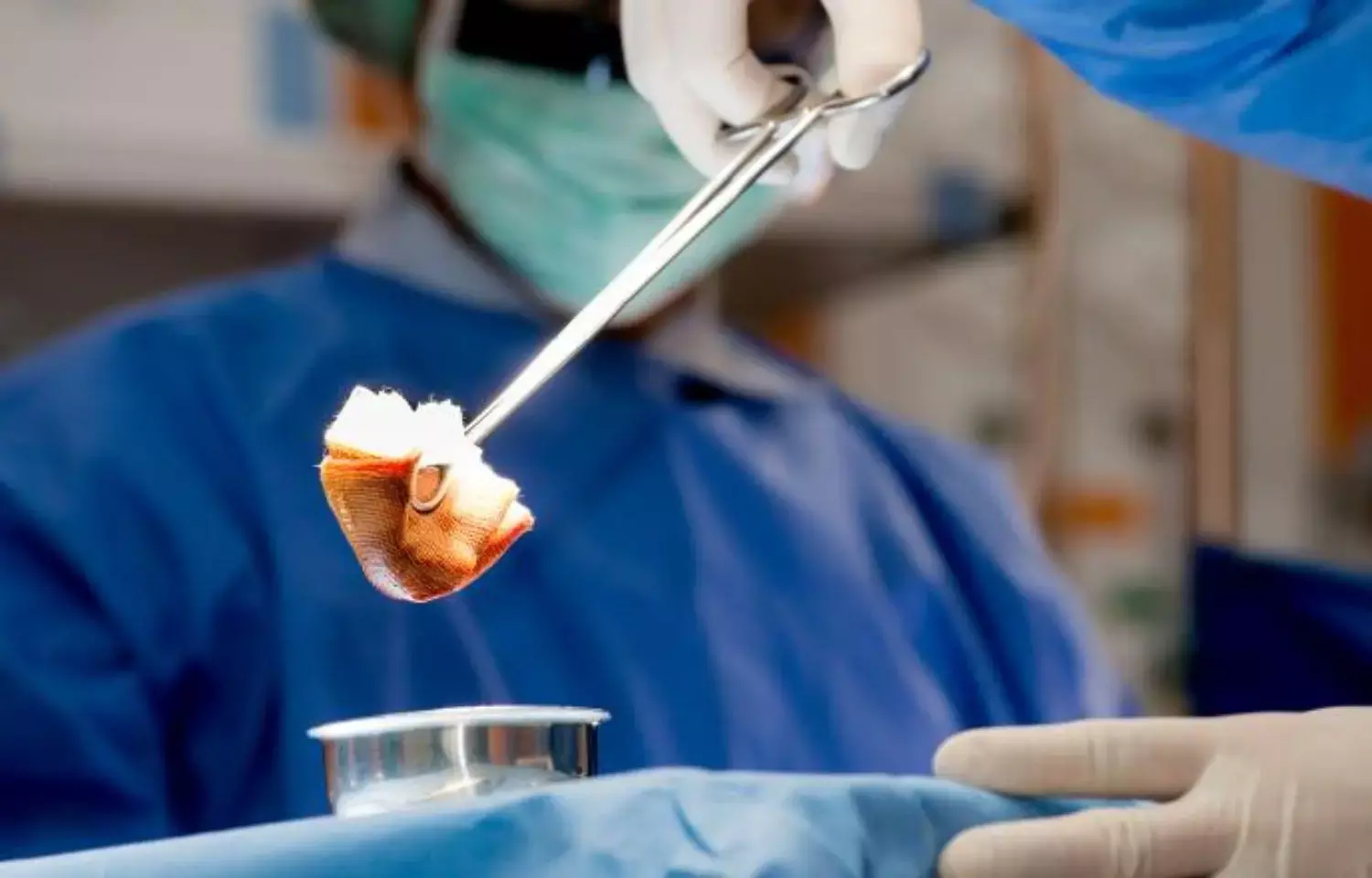- Home
- Medical news & Guidelines
- Anesthesiology
- Cardiology and CTVS
- Critical Care
- Dentistry
- Dermatology
- Diabetes and Endocrinology
- ENT
- Gastroenterology
- Medicine
- Nephrology
- Neurology
- Obstretics-Gynaecology
- Oncology
- Ophthalmology
- Orthopaedics
- Pediatrics-Neonatology
- Psychiatry
- Pulmonology
- Radiology
- Surgery
- Urology
- Laboratory Medicine
- Diet
- Nursing
- Paramedical
- Physiotherapy
- Health news
- Fact Check
- Bone Health Fact Check
- Brain Health Fact Check
- Cancer Related Fact Check
- Child Care Fact Check
- Dental and oral health fact check
- Diabetes and metabolic health fact check
- Diet and Nutrition Fact Check
- Eye and ENT Care Fact Check
- Fitness fact check
- Gut health fact check
- Heart health fact check
- Kidney health fact check
- Medical education fact check
- Men's health fact check
- Respiratory fact check
- Skin and hair care fact check
- Vaccine and Immunization fact check
- Women's health fact check
- AYUSH
- State News
- Andaman and Nicobar Islands
- Andhra Pradesh
- Arunachal Pradesh
- Assam
- Bihar
- Chandigarh
- Chattisgarh
- Dadra and Nagar Haveli
- Daman and Diu
- Delhi
- Goa
- Gujarat
- Haryana
- Himachal Pradesh
- Jammu & Kashmir
- Jharkhand
- Karnataka
- Kerala
- Ladakh
- Lakshadweep
- Madhya Pradesh
- Maharashtra
- Manipur
- Meghalaya
- Mizoram
- Nagaland
- Odisha
- Puducherry
- Punjab
- Rajasthan
- Sikkim
- Tamil Nadu
- Telangana
- Tripura
- Uttar Pradesh
- Uttrakhand
- West Bengal
- Medical Education
- Industry
SSIs: Povidone-iodine as effective as chlorhexidine in reducing surgical site infections

Australia: Current guidelines suggest that during surgical procedures, alcohol-based chlorhexidine solutions should be used for surgical skin preparation. In disagreement with this, a new study found that povidone-iodine with alcohol (PI-Alc) is non-inferior to chlorhexidine with alcohol (C-Alc) and not superior to PI-Aq in preventing surgical site infections. The study article was published in the Annals of Surgery.
Globally, SSI rates are approximately from 2.5% to 41.9%. A surgical site infection (SSI) is an infection that occurs after surgery in the part of the body where the surgery took place caused by germs, mainly the bacteria Staphylococcus, Streptococcus, and Pseudomonas. Surgical site skin preparation is the preoperative treatment (cleaning and disinfection) of the patient's intact skin done before surgery. The most common skin preparation agents used include products containing iodophors or chlorhexidine gluconate. Agents are further classified by whether they are aqueous-based or alcohol-based solutions Chlorhexidine belongs to a group of medicines called antiseptic antibacterial agents, It works by killing or preventing the growth of bacteria on the skin.
Guidelines suggest that alcohol-based antiseptic solutions containing chlorhexidine gluconate (CHG) should be used for surgical site skin preparation in patients undergoing surgical procedures It remains difficult to determine whether it is the chlorhexidine component or the addition of alcohol that confers the most benefit. Povidone iodine is an effective antiseptic that does not hinder wound healing. Povidone iodine is bactericidal against Gram-positive and -negative organisms. No acquired bacterial resistance or cross-resistance has been reported for iodine. It is commonly used as surgical scrub preparations.
Smith SR, John Hunter Hospital and the University of Newcastle, Australia, and his research conducted a clinical trial to compare Surgical site infection rates between the skin preparation agents: povidone-iodine aqueous solution( PI-Aq), povidone-iodine with alcohol (PI-Alc), and chlorhexidine with alcohol (C-Alc).
Researchers conducted a multicenter, prospective, combined non-inferiority (PI-Alc vs C-Alc) and superiority (PI-Alc vs PI-Aq) randomized clinical trial that included 3213 patients. Participants were randomized 1:1:1 to receive either C-Alc(n-: 1076), PI-Alc(n-1075), or PI-Aq(n-1062). The primary outcome was the SSI rate as defined by the Centers for Disease Control. Secondary outcomes were complication rates, length of hospital stay, readmissions, and skin reactions.
Key observations made during the trial,
• SSI rates were: C-Alc 11.09%, PI-Alc 10.88%, and PI-Aq 12.56%.
• PI-Alc was found to be non-inferior to C-Alc (mean difference, −0.21%), whereas PI-Alc was not superior to PI-Aq (mean difference, −1.68).
• There were no differences seen in secondary outcomes between groups and no treatment-related adverse events or deaths occurred.
The authors conclude that povidone-iodine with alcohol shows results non-inferior to chlorhexidine with alcohol, but its effect is not superior to povidone-iodine aqueous solution as skin preparation agents for surgical procedures.
Reference:
Smith SR, Gani J, Carroll R, Lott N, Hampton J, Oldmeadow C, Clapham M, Attia J. Antiseptic Skin Agents to Prevent Surgical Site Infection After Incisional Surgery: A Randomized, Three-armed Combined Non-inferiority and Superiority Clinical Trial (NEWSkin Prep Study). Ann Surg. 2022 May 1;275(5):842-848. doi: 10.1097/SLA.0000000000005244.
BDS
Dr. Hiral patel (BDS) has completed BDS from Gujarat University, Baroda. She has worked in private dental steup for 8years and is currently a consulting general dentist in mumbai. She has recently completed her advanced PG diploma in clinical research and pharmacovigilance. She is passionate about writing and loves to read, analyses and write informative medical content for readers. She can be contacted at editorial@medicaldialogues.in.
Dr Kamal Kant Kohli-MBBS, DTCD- a chest specialist with more than 30 years of practice and a flair for writing clinical articles, Dr Kamal Kant Kohli joined Medical Dialogues as a Chief Editor of Medical News. Besides writing articles, as an editor, he proofreads and verifies all the medical content published on Medical Dialogues including those coming from journals, studies,medical conferences,guidelines etc. Email: drkohli@medicaldialogues.in. Contact no. 011-43720751


